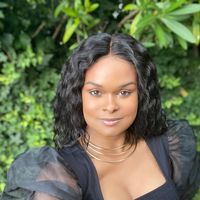Changemakers 2021: Working Toward Wellness
Physical and mental well-being cannot be separated. These changemakers are working to ensure you have both.
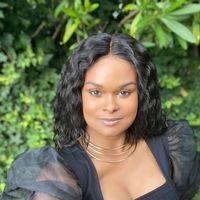
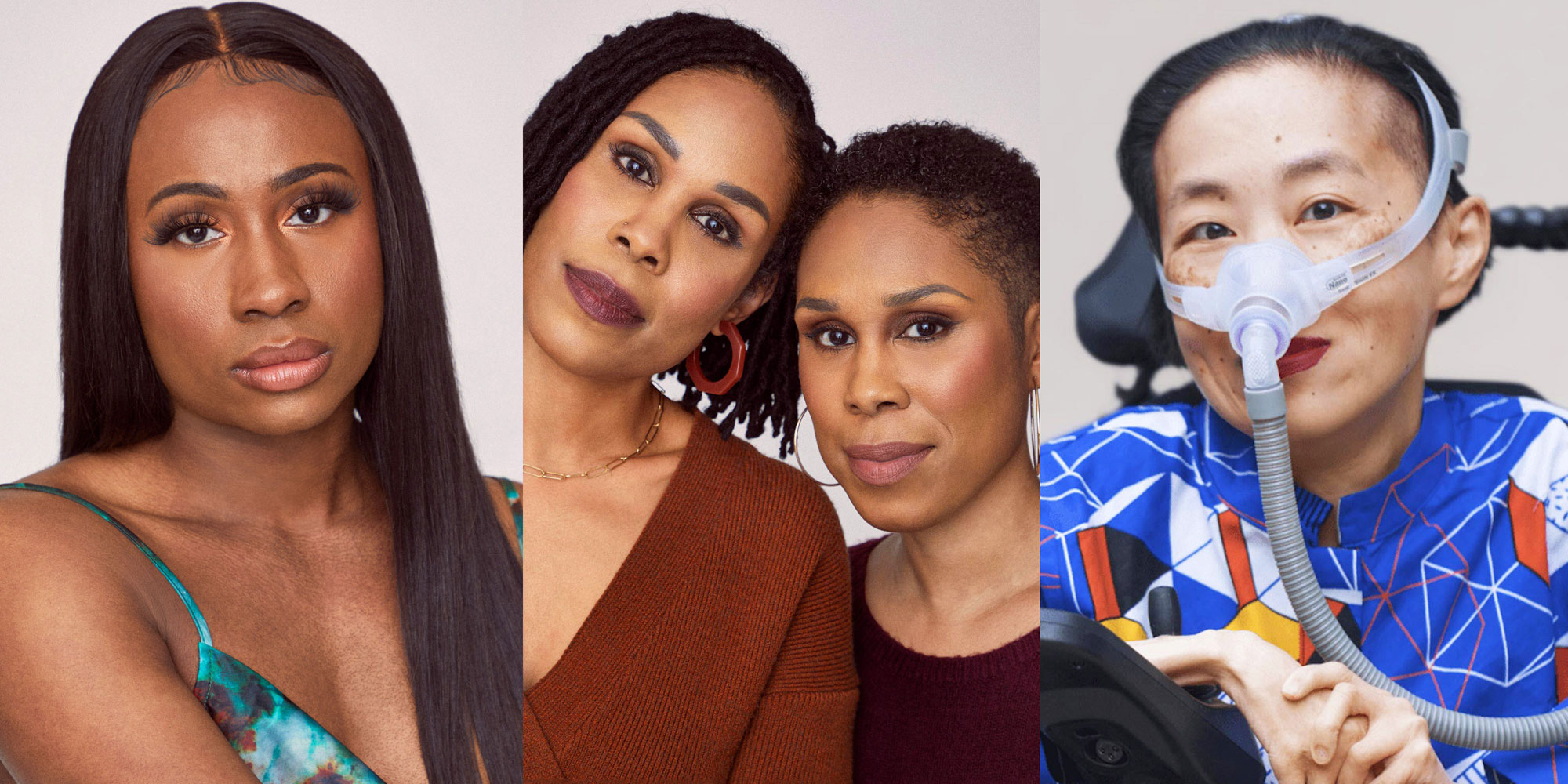
Over the past year, we humans have had our lives upended as we try to ward off the unknowns of the novel coronavirus. It’s devastated our physical health—at the time of publication, the number of American lives lost was 500,000 and counting—and exacerbated our mental-health crisis. In fact, the American Psychological Association reported that 71 percent of Americans believe we are living through the lowest point in United States history that they could remember.
Despite the difficulties we’ve faced, there has been at least one redeeming factor: Our society has reconsidered the bravery and perseverance of frontline health-care workers and their daily fight to keep our bodies thriving. Now it’s time to celebrate the ones giving relief to our spirits—the reproductive justice warriors, end-of-life planners, mutual aid facilitators, and more, dedicated to making 2021 less stressful and healthier for all Americans. That’s why this year Marie Claire is putting the changemakers who are bridging the gap between health and hope front and center.
Equity Champions
Dr. Oni Blackstock, founder and executive director of Health Justice, and Dr. Uché Blackstock, founder and CEO of Advancing Health Equity, New York City
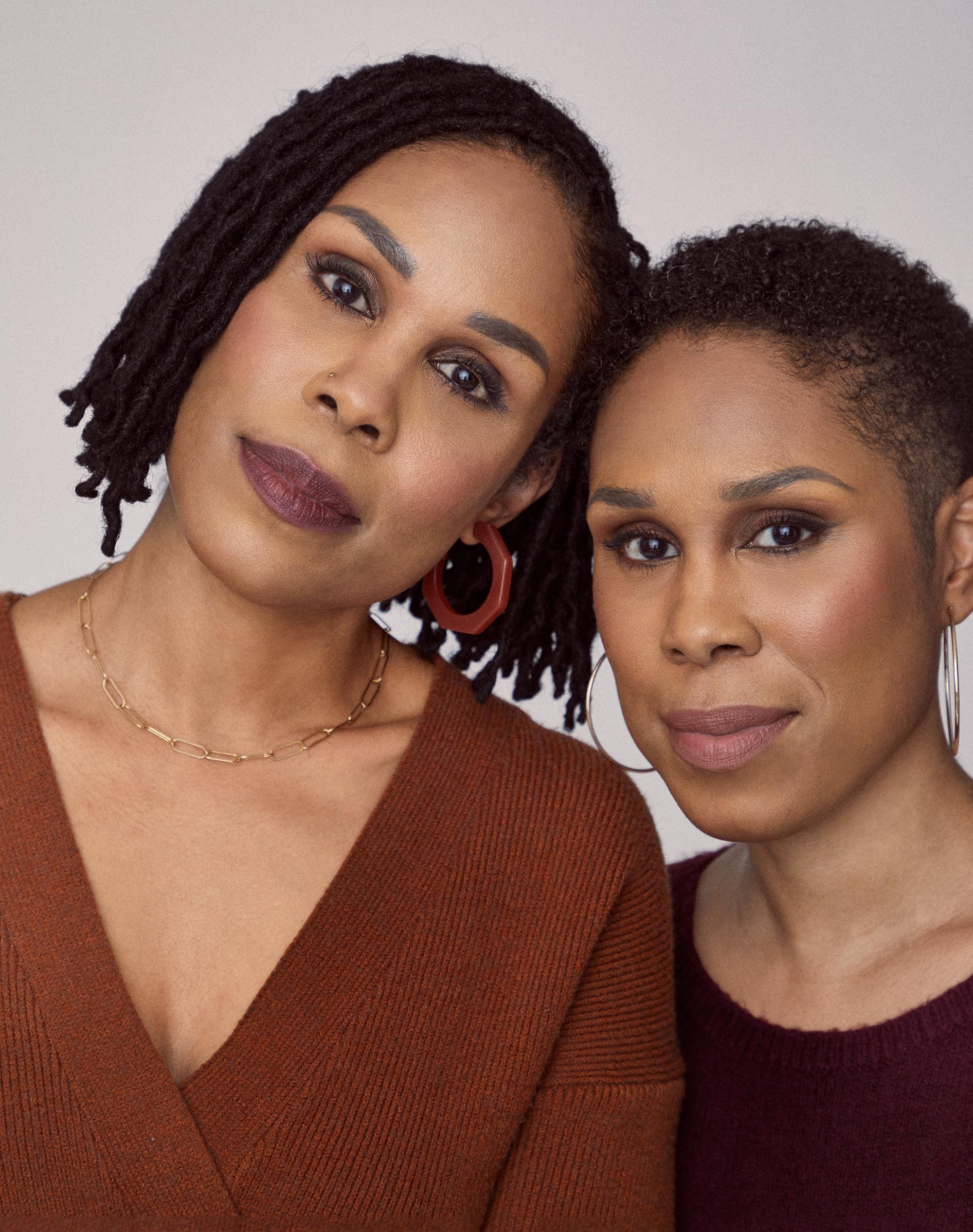
Sisters Uché (left) and Oni Blackstock. Hair by Ro Morgan at The Wall Group for Design Essentials and makeup by Emily Amick for MAC
Doctors and twins Oni and Uché Blackstock share more than just DNA; they both have the distinction of being leading voices in the fight for racial equity in health care. Inspired by their late mother’s work as a nephrologist and her eventual battle with leukemia, the Blackstock twins charted their own paths in the field.
Oni found a calling in examining the social determinants and systems of oppression that impact people’s health, most notably HIV/AIDS. This led to an appointment as assistant commissioner of the New York City Department of Health and Mental Hygiene in 2018. While there, she spearheaded the effort to create guidance for providers on mental health, substance use, and depression in the midst of the pandemic, including disseminat[ing] guidance about the intersection of COVID-19 and HIV, as well as a “Safer Sex and COVID-19” guide that went viral. “We were getting lots of questions from community members about how to continue to have safer sex,” Oni says.
Coinciding with the calls to combat racism inspired by the police killing of George Floyd, Oni exited her health-department post in July to found Health Justice, an initiative focused on helping the health-care industry and public health organizations combat cyclical injustice and reduce health inequities.
Uché has similarly been on a crusade to address social determinants for health. Her initiative, Advancing Health Equity, founded in 2019, advises health-care organizations on how to eradicate racism and bias in their work. In June, Uché, an emergency medicine physician, was called to testify in front of the U.S. House of Representatives Select Subcommittee on the Coronavirus Crisis. She urged political leaders to address the “racist policies of economic institutions that have left Black lives devalued,” and believes that last summer’s racial injustice awakening could be a turning point.
Get exclusive access to fashion and beauty trends, hot-off-the-press celebrity news, and more.
“There are many [health-care organizations] that want to change, but we need to make sure we continue to hold them accountable,” Uché says. “We need to make sure that they are creating environments where Black people can receive the best care possible.”
Self-Determination Supporters
The Fireweed Collective, nationwide mental-health education and mutual-aid group
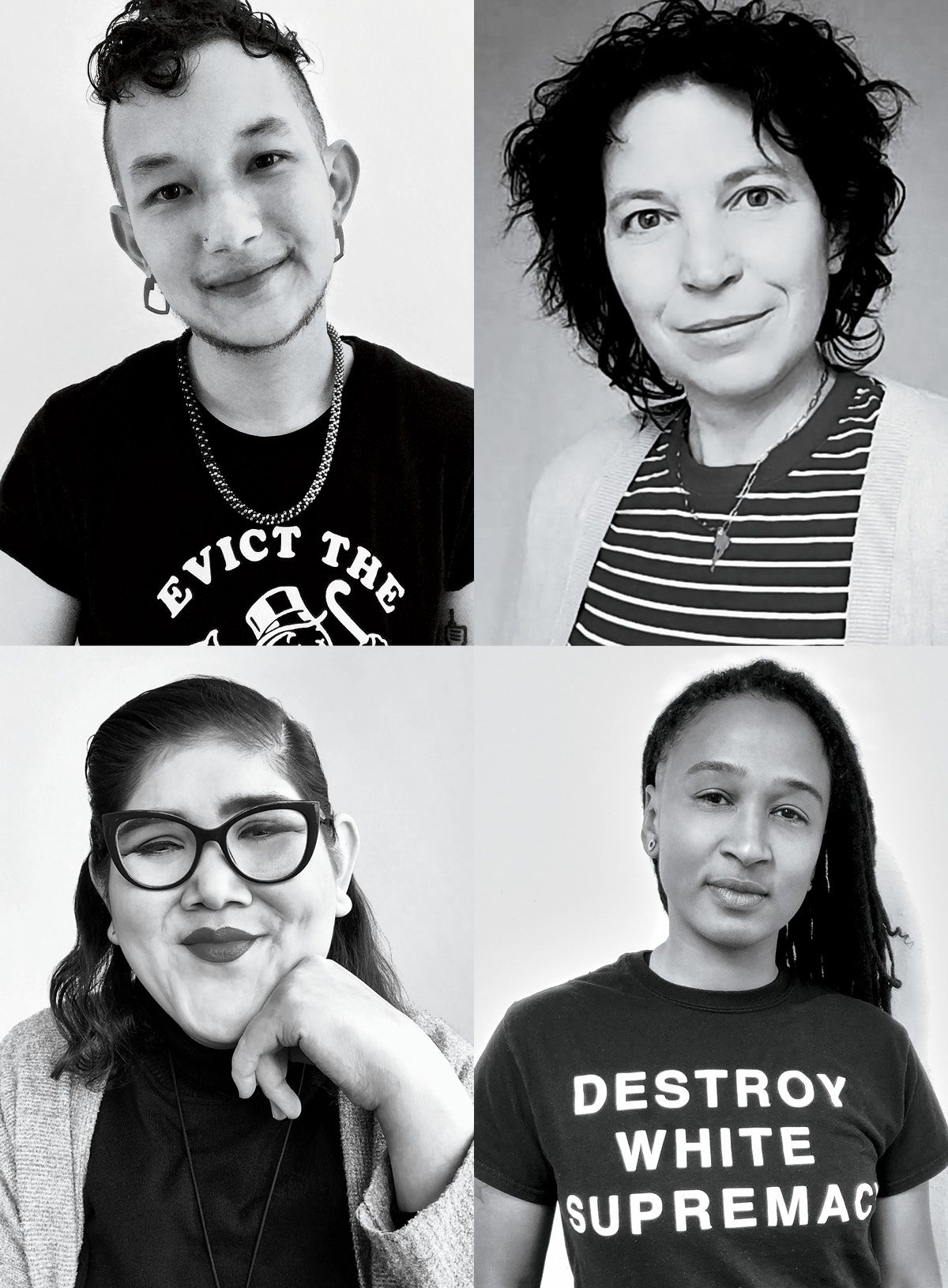
Members of Fireweed Collective’s team, clockwise from top left: Elliott Fukui, Agustina Vidal, Antoinette Chen See, and Lilac Vylette Maldonado.
The Fireweed Collective is the phoenix that, in 2020, rose from the ashes of the Icarus Project, a long-running mental-health community that shuttered after “grievances about an organizational culture that harmed” marginalized folks, according to its website. Fireweed repurposed the best of the former project—a commitment to helping people with mental-health issues—and added a lens focusing on the very communities that were deprioritized previously.
“We’re making spaces for people to create relationships with each other and come to a better relationship with their own mental health and the people around them,” says Antoinette Chen See, a member of Fireweed’s education team.
Fireweed’s core programming includes weekly support groups for low-income people, immigrants, and new parents, among others; monthly dance parties; and webinars.
One of the latter, hosted by collective member Elliott Fukui, “illustrated how prison and psychiatric abolition are intrinsically tied.” For Chen See, it was one of the most impactful and memorable thus far.
We are the best people to decide what we need and want in any moment.
Bolstering Fukui’s argument is research published in the journal BMC Public Health showing that mental illness is two to four times more common in jails and prisons than in the general population. In a time of calls for prison abolition and defunding police (who are often the first interveners during a mental-health crisis), the political education and healing justice philosophy used by Fireweed is essential for its community.
“We’re looking forward to seeing the ways people implement healing and disability justice into their daily lives and [are hopeful] that they understand that we don’t have to go back to [how it was before the pandemic]: the misinformation, isolation, and individualism that is so tied to white supremacy, imperialism, and capitalism,” Chen See says. “We’re looking forward to people understanding that we can rely on each other and that we are all brilliant and intelligent and the best people to decide what we need and want in any moment.”
Disability Disseminator
Alice Wong, founder of the Disability Visibility Project, San Francisco
When disability activist and media maker Alice Wong launched the Disability Visibility Project (DVP) in 2014, it was set to be a year-long partnership with StoryCorps, recording the oral histories of people with disabilities. The project has since evolved into a media powerhouse: Next month, the DVP podcast will reach 100 episodes. In June 2020, Wong released “Disability Visibility: First-Person Stories From the Twenty-First Century,” her second essay anthology. With that volume under her belt, she estimates that the initiative has elevated 500 stories since its inception. Also last year, she was honored with the inaugural Disability Futures Fellowship, an 18-month program from the Ford Foundation and the Andrew W. Mellon Foundation to “spotlight the work of disabled creatives across disciplines and geography and amplify their voices individually and collectively.”
Through her activism, Wong is ensuring that the ethos of the project sprawls beyond its contours. A few months ago, she developed the hashtag #HighRiskCA to draw attention to the fact that California’s COVID-19 vaccination plan deprioritized people with disabilities. The discussions she inspired went viral, leading to the creation of sister hashtags in other states.
Wong is grateful that people are beginning to understand why amplifying stories in different formats expands accessibility. “We live in a time when there’s so much brightness and creativity out there and I get to share that with the wider world and hopefully nurture it and support it,” she says. “It is an honor to be able to do this in different mediums, whether a book, a podcast, or a blog. We have to do that. We can’t narrow ourselves too much.”
Harm Healers
Trans Lifeline, first national transgender crisis hotline, Oakland, California
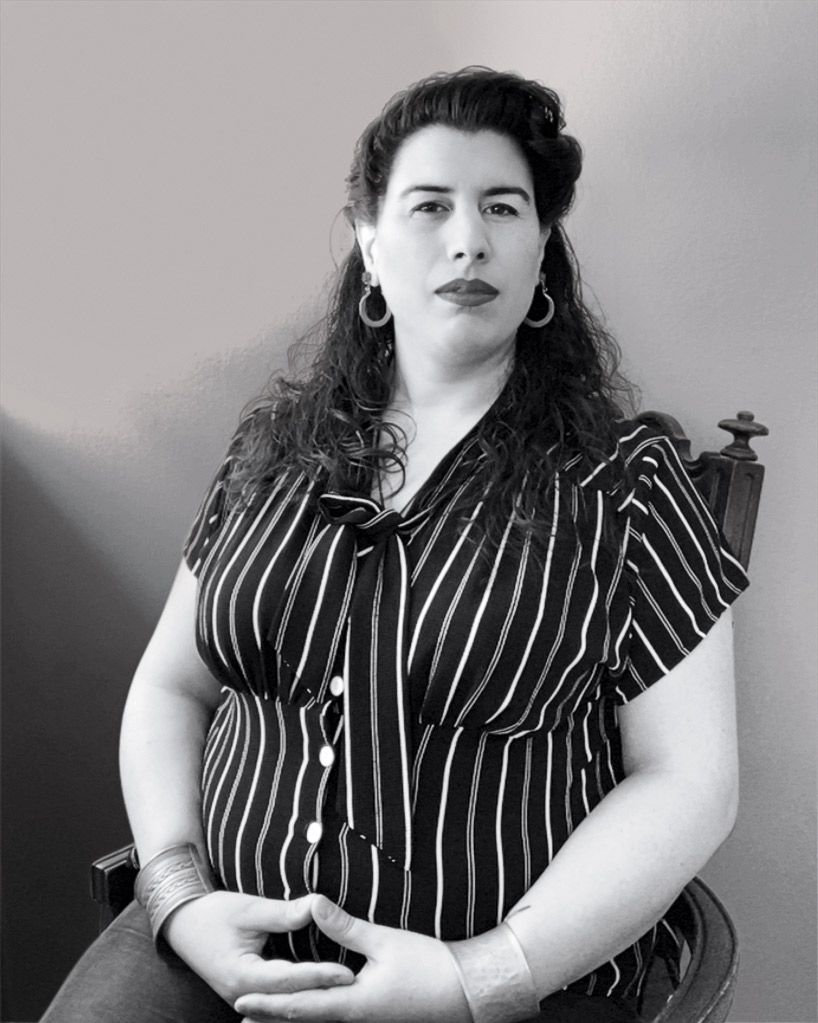
Trans Lifeline executive director Rev. Elena Rose Vera
For years, suicide has been one of the greatest issues plaguing the transgender community. According to the Trevor Project’s 2020 National Survey on LGBTQ Youth Mental Health, more than half of transgender and nonbinary youth had seriously considered suicide in the year prior. The staff of Trans Lifeline—launched in 2014 and led now by executive director Rev. Elena Rose Vera—witnessed this crisis firsthand, answering 31 percent more calls about suicidal ideation in 2020 than in 2019. Callers were sharing increased anxiety and despondency due to the postponement and cancellation of gender-affirming procedures and the intense dysphoria that comes with staying at home with non-affirming loved ones, explains Vera.
While still focused on ending self-harm among this population, Trans Lifeline has expanded its mission to provide “connection, economic security, and care for trans people, free of prisons, police, and involuntary hospitalization.” Last year, the group created a Spanish-language extension and instituted an equity policy to ensure that BIPOC are prioritized in their microgrant disbursement process. By the end of 2020, Trans Lifeline raised more than $3 million, and earlier this year they launched dedicated services and volunteer training to tackle the increase in domestic and intimate-partner violence that has resulted from the implementation of stay-at-home orders.
“When the pandemic hit, we weren’t sure how people were going to respond. But they signed up in greater numbers than before to volunteer on our hotline and offer peer support,” says Vera. “We saw people come together to find new ways of funding trans people who needed critical support. It’s been really powerful and humbling.”
Death Defender
Alua Arthur, death doula and founder of Going With Grace, Los Angeles
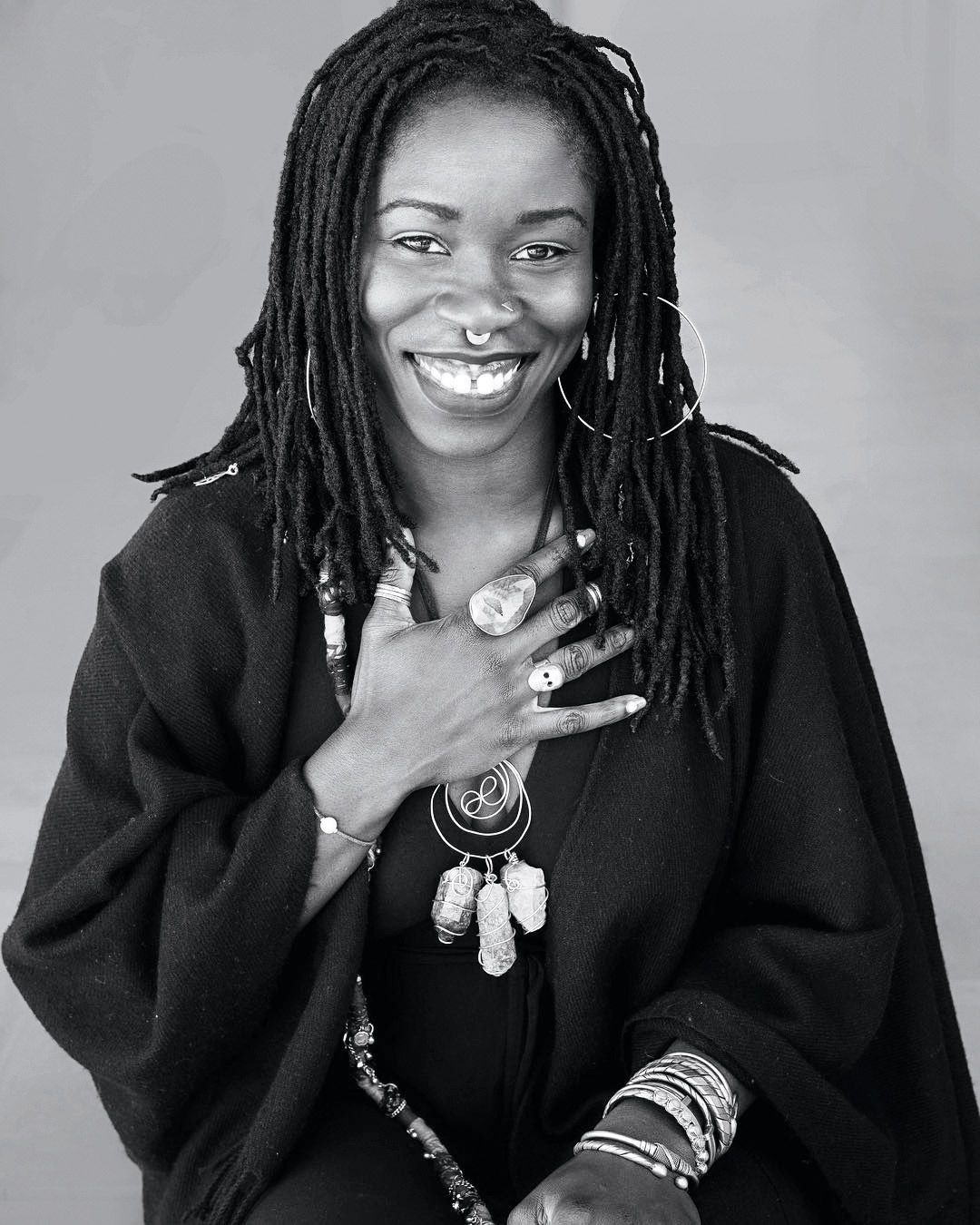
Alua Arthur
At the start of the pandemic, Alua Arthur found herself in a unique position to support those planning their own death or the deaths of loved ones: In 2013, her brother-in-law received a terminal diagnosis of Burkitt lymphoma; Arthur cared for him. That led her to start Going With Grace, a comprehensive end-of-life planning and support, as well as death doula training practice.
As stories about people receiving inadequate care and dying alone proliferated last year, more sought out consultations from Arthur than ever before. Arthur believes that in this moment there’s an opportunity for the public to transform its thoughts on death. “You are going to die and no amount of distracting, pretending, or buying stuff is going to make that go away. Not thinking about it doesn’t mean it’s not coming,” She says. “There are great benefits to thinking about [death] while we’re still living.”
The People’s Philanthropy
For the Gworls, mutual-aid fund, New York City
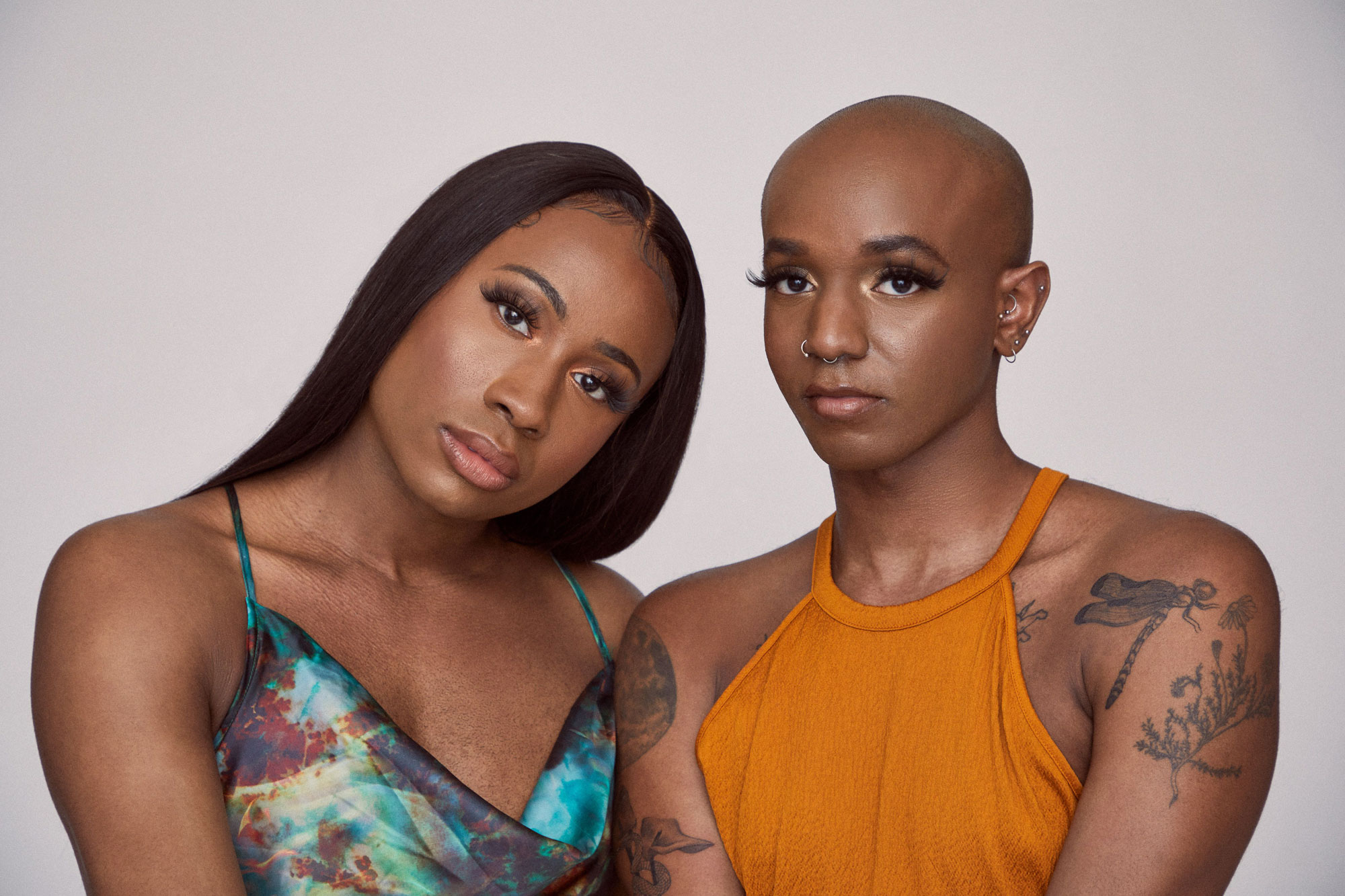
For the Gworls founders Asanni Armon (left) and Maahd. Hair by Indirxia Bowie and makeup by Pearl Cyrene
For the Gworls (FTG) cofounder Asanni Armon describes the initiative’s inception as a “divine alignment” with her friend Maahd, an artist and DJ. Launched in 2019, FTG began as a humble rent fundraising party for two friends facing eviction. The event’s success inspired the duo to continue the effort monthly for Black transgender people, covering rent, gender-affirming surgeries, and other medical expenses.
When the pandemic hit, FTG moved its work to the digital sphere, creating a donation site and application process. Within a few months, the collective’s Instagram gained tens of thousands more followers, expanding its reach beyond the States; it has sent aid to folks in the United Kingdom, Spain, Jamaica, Nigeria, and Uganda.
Armon notes that their success didn’t come without its difficulties. “It was a challenge to read all of these traumatic stories about people experiencing loss,” she says. “People have been conditioned to think that the more you pour your heart out, the more somebody will be willing to help you. FTG actively rejects that. I trust that if you are coming to ask us for help and you are a Black trans person, you are doing it because you need it.”
While they grind hard to aid their community, the collective is growing (they hit $1 million distributed and have hired two new staffers) and dreaming of a grand return to IRL events soon.
Mind Nourisher
Rachel Cargle, founder of the Loveland Foundation, New York City
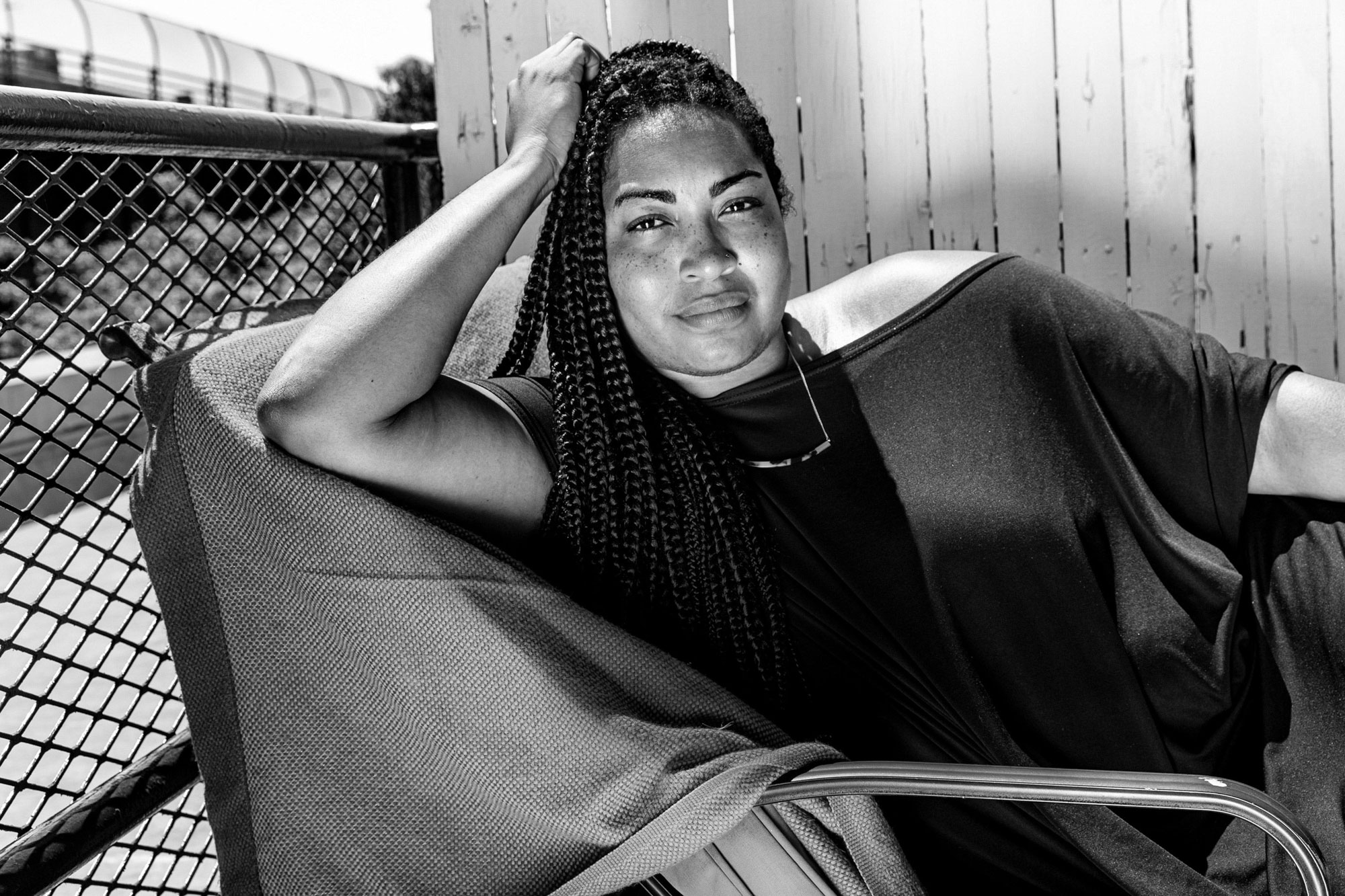
Rachel Cargle
At the 2017 Women’s March, a photograph of Rachel Cargle holding a protest sign declaring, “If you don’t fight for all women you fight for no women” catapulted her to social-media fame. A year later, after leaving a therapy appointment, Cargle was inspired to use her digital soapbox to lift up even more women.
“I was just so grateful for that session that I’d had. It lessened my stress about work, and I gained clarity and language around things,” she recalls. “I have such a clear memory of thinking, Every single Black woman deserves this. I ducked into a Starbucks and I created a GoFundMe.”
Cargle’s quick crowdfunding of $250,000 laid the groundwork for the Loveland Foundation, a national organization dedicated to helping Black women and girls access therapy. Her effort came the same year that the Office of Minority Health reported that suicide was the second-leading cause of death for African Americans in the 15-to-24 age group.
As collective trauma regarding the pandemic and racial injustice have dominated headlines, Loveland reached the milestone of microgranting enough funds to cover more than 20,000 hours of therapy. Due to the increased attention, the foundation now has a rolling wait list. Cargle is heartened to know that so many are benefiting from the foundation’s efforts. “I don’t know all these people,” she says. “I will never meet the majority of them, but I do have hope knowing that there are several Black women walking around the world right now feeling a little more empowered, grounded, self-aware, and understood.”
Boundary Builder
Nedra Glover Tawwab, therapist, relationship expert, and author, Charlotte, North Carolina
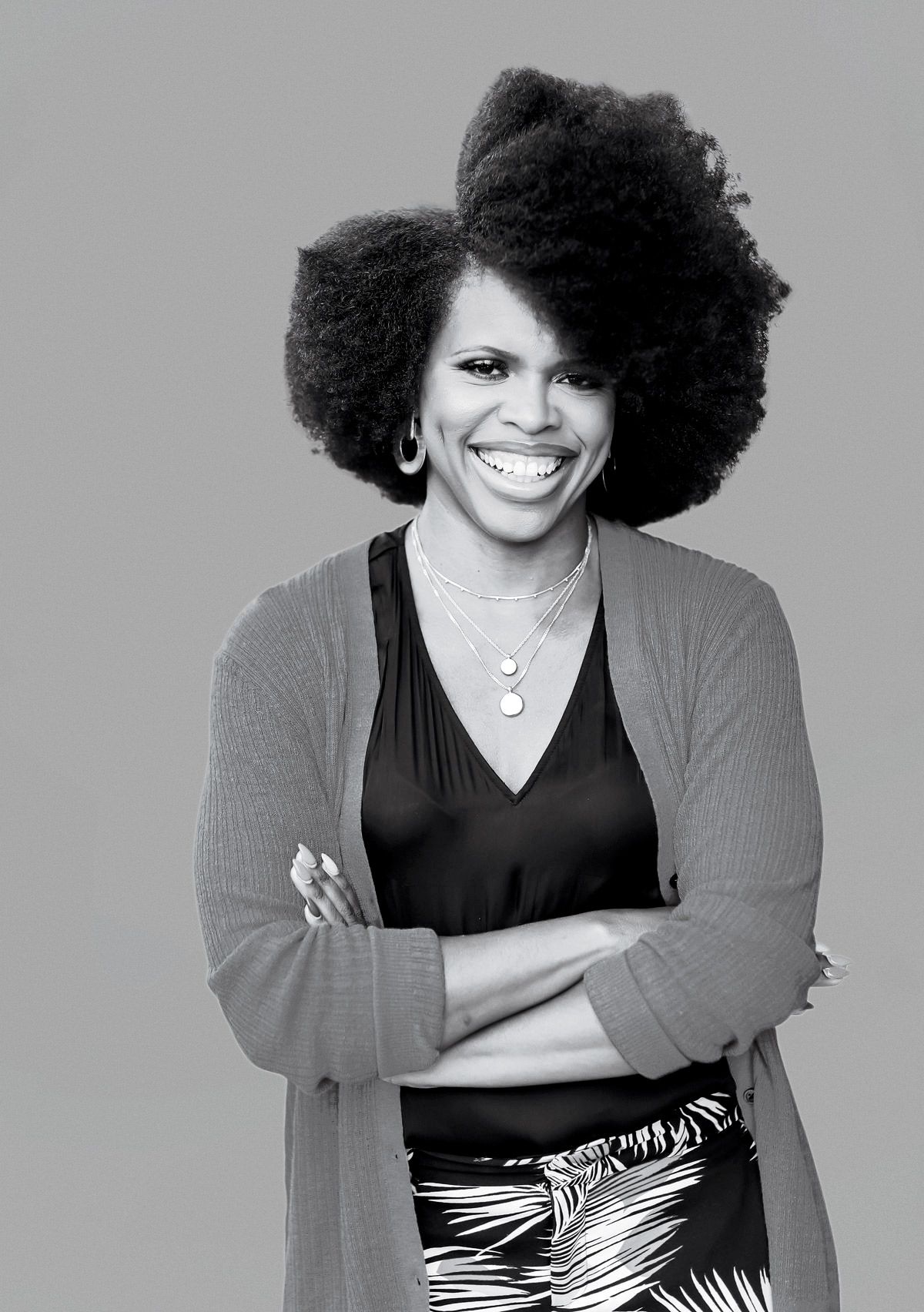
Nedra Glover Tawwab
Relationships take work; therapist Nedra Glover Tawwab isn’t interested in running away from that fact. The founder of Kaleidoscope Counseling is quick to name boundary setting as one of the most important aspects of healthy connections. She also sees it as a survival aid in this time of immense isolation.
“People think that boundaries are just about saying no,” Tawwab says, “but it’s much more than that, especially with the rise of technology and social media. Boundary setting is a really important way to empower yourself and own what is OK and what is not OK in relationships and various areas of your life.” Her essential elements of boundary establishment include protecting your core values, feeling less guilt around declining opportunities, and clearly communicating needs and wants, lessons fleshed out in her new book, Set Boundaries, Find Peace: A Guide to Reclaiming Yourself.
“So often social media gets a bad rap, but I wanted to create a space where people can learn more about their mental health, whether they are in therapy or not, because everyone will not go to therapy, but they can have the tools and should have them for free,” Tawwab says of the mantras and exercises she regularly posts on her Instagram, a welcome digital safe haven within striking distance of 1 million followers. “It’s a huge accomplishment to be able to touch so many people all over the world.”
Reproductive Warriors
SisterSong, reproductive justice collective, Atlanta
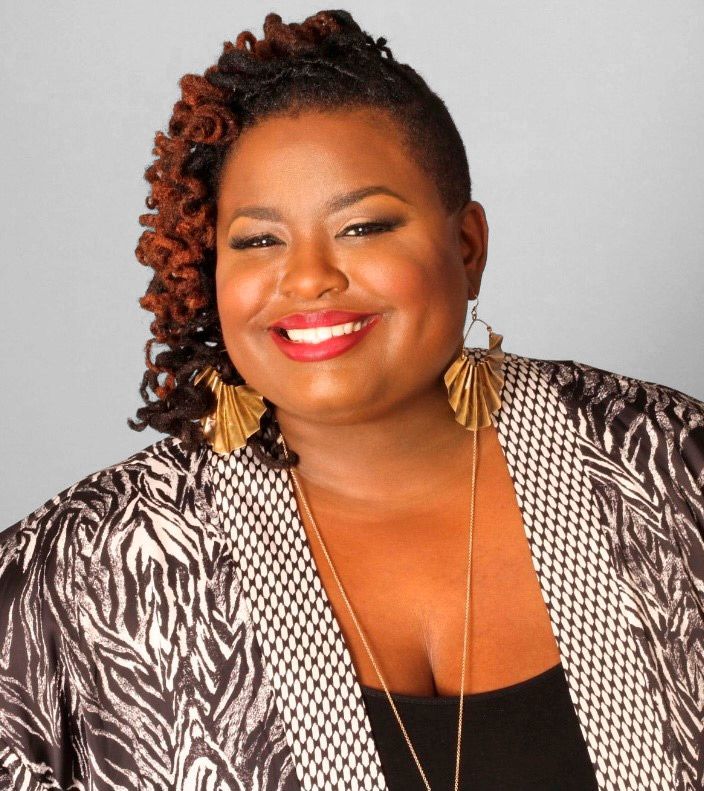
Monica Simpson, SisterSong executive director
There would be no reproductive justice movement without SisterSong, the vanguard organization fighting for the reproductive lives of those on the margins. In fact, Loretta Ross, the first national coordinator for SisterSong, was among the collective of Black women who coined the term in the 1990s. Now, with Monica Simpson as executive director, SisterSong continues to live up to its pioneering reputation. Last summer, it won a major victory for abortion care access as the lead plaintiff in a lawsuit against Georgia governor Brian Kemp; thanks to the challenge by SisterSong and the ACLU, among others, a federal judge ruled that the legislation at the case’s center—a heartbeat ban passed in 2019—was unconstitutional. “We changed the game and hopefully set the stage for more advocacy groups to be able to hold their elected officials accountable,” Simpson says.
SisterSong’s evolution deepened when it began to formally incorporate direct service into its core work last year. In May, the organization launched the Birth Justice Care Fund to support pregnant, laboring, and postpartum people of color struggling during the pandemic. So far, it has disseminated more than $99,000 to families.
Even with the recent changes and successes, Simpson urges reproductive justice (RJ) strivers not to rest on the laurels of a few wins. She nods to the major planks of RJ work, like expanding holistic sexual education, ending the stigma and barriers impeding abortion access, and reducing the maternal mortality rate of Black women who, along with American Indian and Alaska Native women, are two to three times more likely to die from pregnancy-related causes than white women.
“For a long time, we were in a reactionary space,” she says. “Now it’s about how we think about the world that we want to see, not just what we want to defeat or push back. That is going to require deeper investments, more people power, and getting them connected to [reproductive justice] issues so that we can really shape that future together.”
This story appears in the April 2021 issue of Marie Claire.
MORE FROM OUR CHANGEMAKERS ISSUE
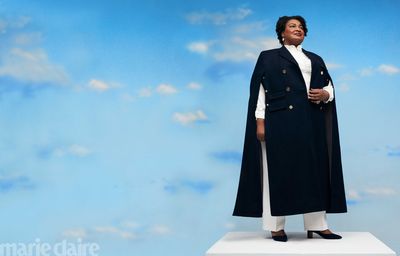
Raquel Willis is an award-winning activist, writer, and media strategist dedicated to elevating the dignity of marginalized people, particularly Black transgender people.
